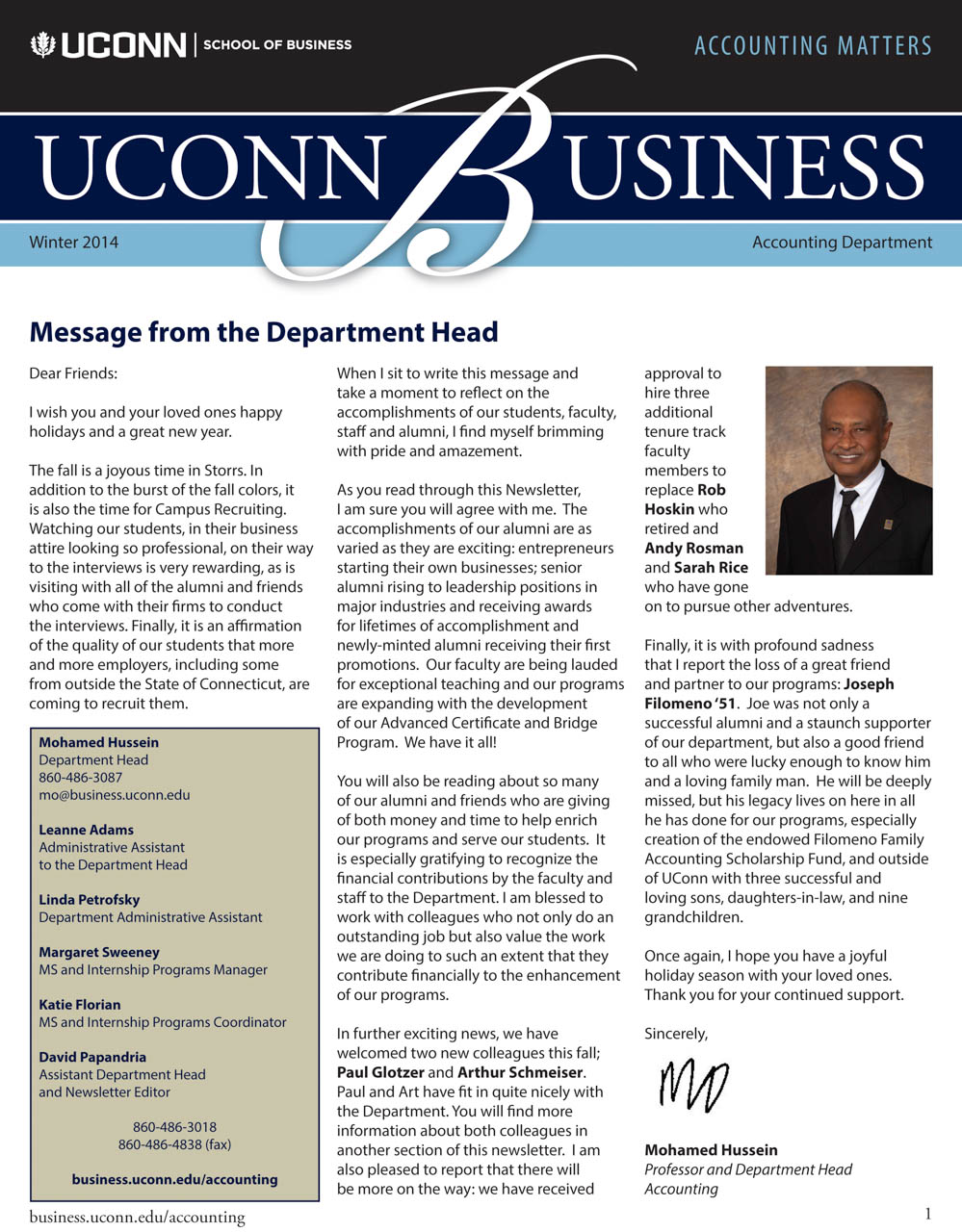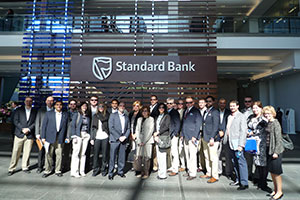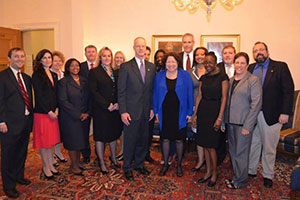The United Way of Naugatuck and Beacon Falls had more to celebrate at its 50th annual meeting than the organization’s golden anniversary.
The United Way exceeded its 2012 campaign goal by $15,000 and raised a total of $440,000, said Laurie Yelding, campaign chairwoman.
The evening’s highest honor — the Mary H. Connolly Community Caring Award — was given to Lee Schlesinger ’82. The Mary H. Connolly Community Caring Award is presented annually to recognize an individual or individuals who have demonstrated outstanding support to the United Way and the entire community and who have set the standard for service to the community.
Schlesinger, a Naugatuck native who now lives in Waterbury, is the associate director for Safe Haven of Greater Waterbury. Twenty years ago, he worked for Naugatuck Valley Savings and Loan. At the time, he was approached by Mary Connolly, who was the executive director of the United Way, about volunteering.
“Mary has that kind of personality where you just do not say no to her,” Schlesinger said. Schlesinger didn’t say no. He served on the United Way’s Board of Directors for two terms. He was treasurer for nine years and a member of the Allocations Committee, which controls the distribution of funds to local service agencies.
Schlesinger’s volunteerism extends beyond the United Way. He served as president of the board of directors of the Morris Foundation, which provided mental health and addiction services and is now part of Wellmore. For the past 12 years, he has been co-chairman of the Finance Committee for the American Cancer Society – Greater Waterbury Relay for Life. Lee has also been an event volunteer for Special Olympics’ Penguin Plunge. He was the recipient of the United Way of Naugatuck & Beacon Falls Van Allen Medal in 2012 and Connecticut Coalition Against Domestic Violence – First 100 Plus – honoring male leaders from across the state who have worked to raise awareness of the availability and access to domestic violence services in Connecticut. He also received the Volunteer Award from Morris Foundation.
“My first and sustained impression of Lee over the years is what an incredibly kind, compassionate and decent soul this is,” said Kevin DelGobbo, who introduced Schlesinger.
Schlesinger thanked Connolly for asking him to volunteer all those years ago and said he was honored to be recognized. “It is such an honor to even be considered for this award among the distinguished previous recipients,” he said.


